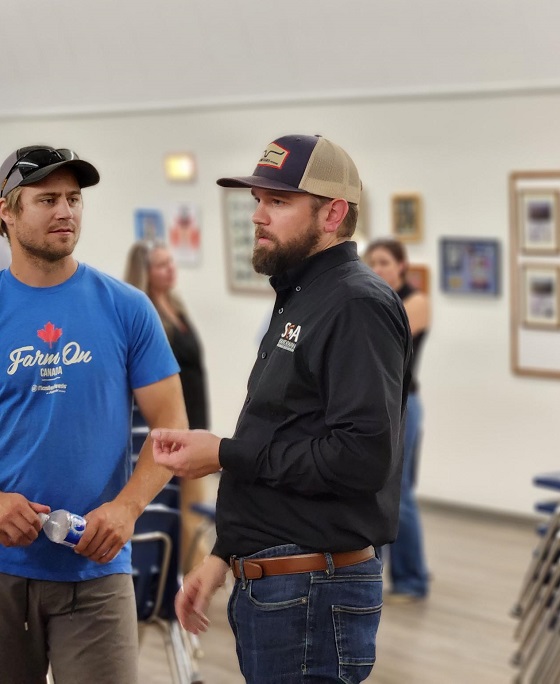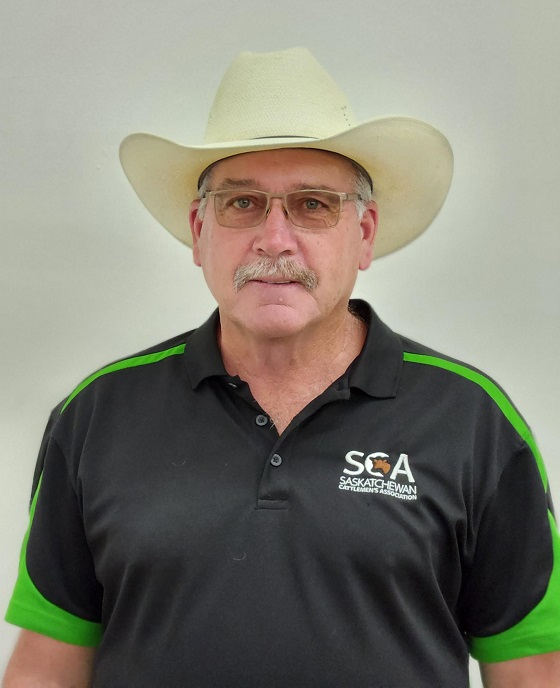While tense at times, the conversation was one of insight and open communication in Cabri yesterday.
The Saskatchewan Cattlemens Association held talks for cattle producers during a Town Hall meeting. Yesterday's meeting was hosted in the Cabri community centre.
Producers who made it out to the meeting had a chance to talk to SCA CEO, Grant McLellan, SCA Chairman Keith Day, and other officials and experts that were able to make it to the meeting.

"I mean, ultimately we've got an industry that is interested in continuing to grow and be successful and to hand it off to the next generation," said McLellan. "To acknowledge that we need support in cases like this when we're challenged with drought and conditions like we've been facing in the southwest for a while now."
One of the biggest focuses for producers during this drought is financial support. As the drought continues and more and more farms are forced to liquidate their herds, they are looking for relief from not only local and provincial bodies, but from the federal government as well.
The main program these producers were directed to was the AgriStability program. This program is designed to help with large margin losses and is in place to help those it can with staying above water.
"I think the changes AgriStability will help," offered Day. "I think recovery payments would be huge for some people. We just got to look at every option and hope we can come up with enough solutions to keep people in the business."

While there was tense discussion on topics like feed prices, shipping costs, and calls for more to be done to help minimize losses, by the end of the day, most left agreeing that the conversation had opened up their eyes on quite a few matters.
One of the things that most seemed happy to hear about was that feed testing was available in the area and was set at a reasonable price.
Feed testing has become an important step in the process, as grain normally flagged for production has instead been diverted for feed to help cattle producers and their animals. This grain may have been sprayed for grasshoppers, which could prove problematic if not deadly for the cattle eating it. In order to be sure the feed is safe for bovine use, it can be shipped off for testing, for a small fee.
Another topic brokered was the fact that shipping feed has become astronomically expensive for some producers.
"You can find feed and you can find affordable feed, but the freight is just killing us," said Day. "You can't pull feed 3-4 hundred kilometres and make it worth it. It's the freight that's really making the difference."
In that instance, there is no easy solution. The goal of programs like grain sharing is that it will eliminate some of the distance.
Of course, the drought was the main culprit behind many if not all of these woes. Cattle need water, and some producers do have sources that can access. Others depend on the rain to fill dugouts and to replenish the pasture land of rasses and other growth. These are the worst affected by the drought, with many having had to leave the industry behind for greener pastures.
"I'd like to see them staying in business as long as possible, with as many cattle as they can make work for themselves," said Day. "I understand where they're coming from. It's just been year after year after year for some folks and they're just running out of options. Their grass is short, their water may be low and their feed is almost non-existent. We're running out of options. The last option is to sell out."
Going forward, the SCA will continue to speak to farmers. They want to make sure that not only is there open dialogue about the drought and the issues it has created but are also working hard to ensure everyone's mental health isn't being worn away by the situation.
"I really want to beat the drum that mental health is so important in situations like this," stressed McLellan. "We really do want to point people to the farm stress line and the Canadian Mental Health Association and other services that are out there. Please take care of yourself. Take care of your loved ones because it's challenging out there. It's important that we take care of ourselves."
There is another meeting today in Cadillac. Anyone who wasn't able to make it out to the meeting is more than welcome to give the SCA a call and ask them any questions they have. All relevant contact information can be found on the SCA website.
